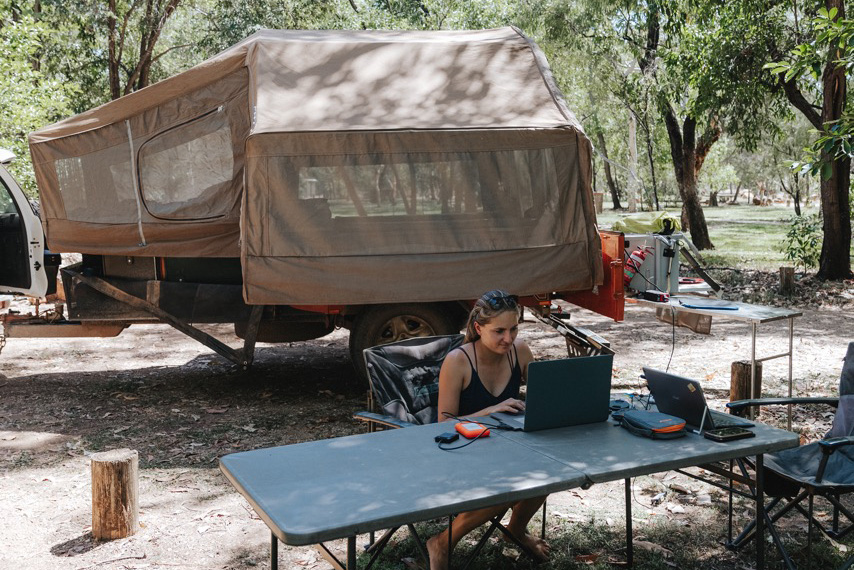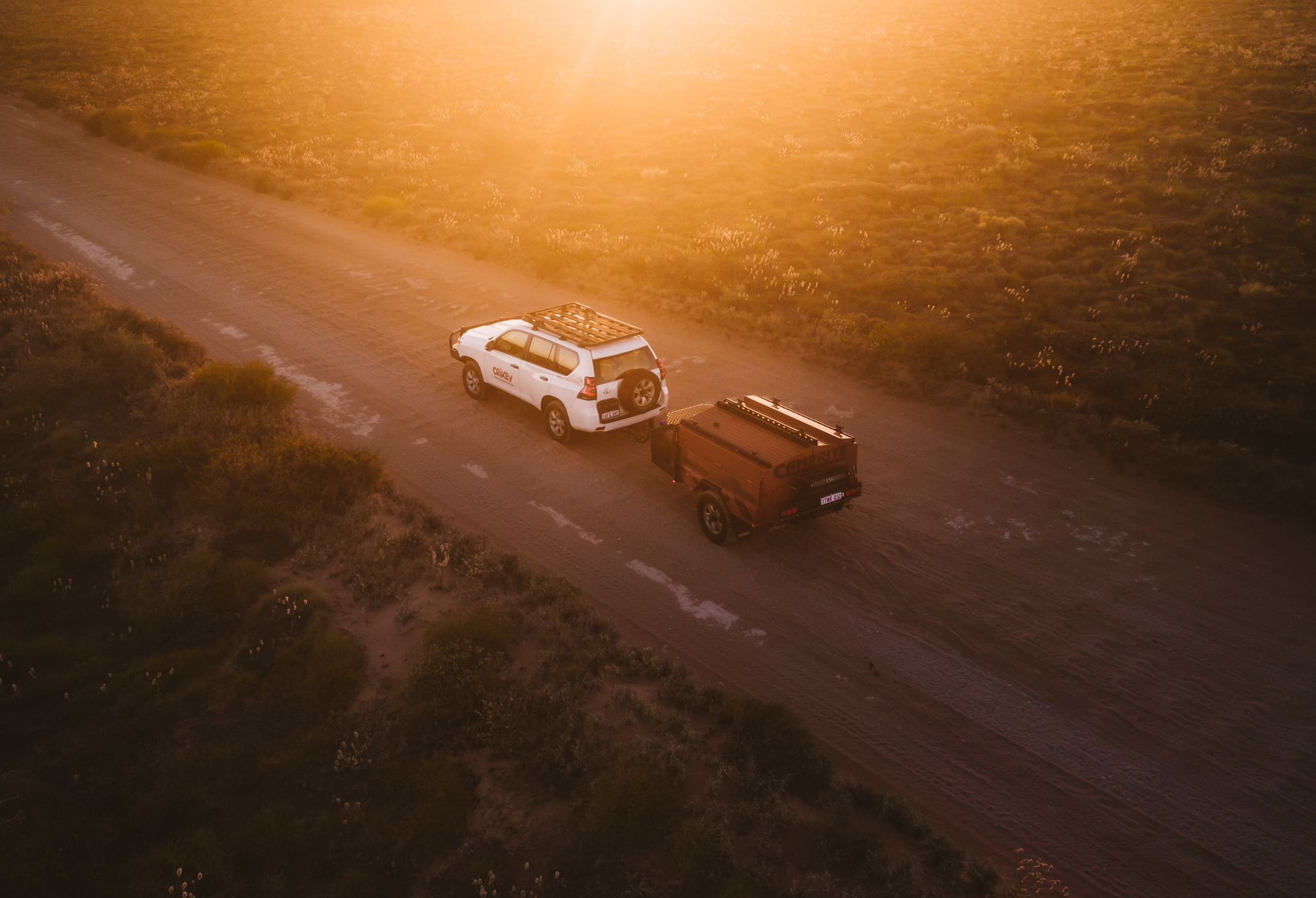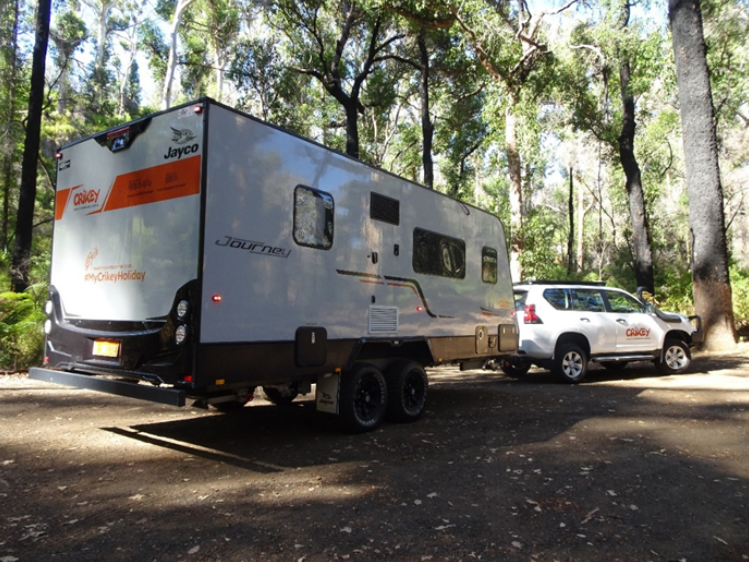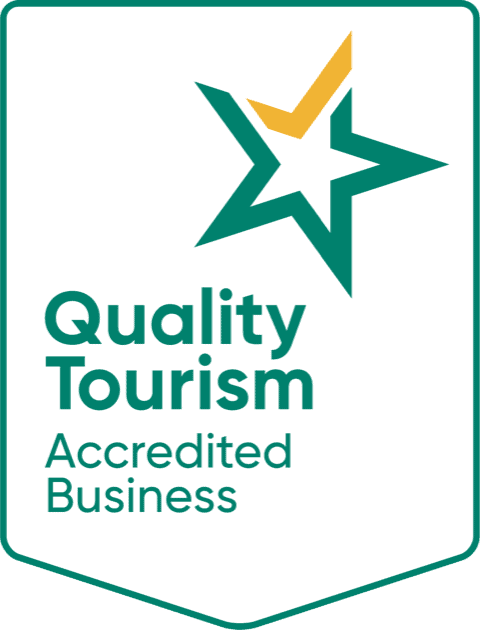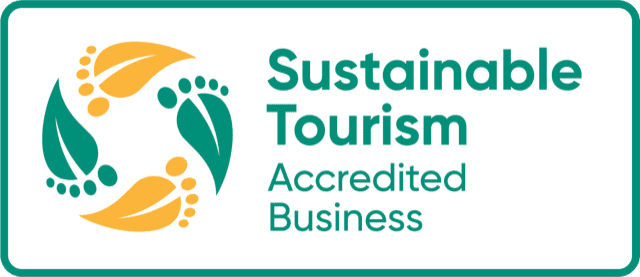Campsite Safety and Security
Crikey Camper Hire packages allow you to detach your 4WD vehicle from your camper or caravan and explore the outdoors without having to pack everything up every time you leave. Detaching your vehicle from your camper or caravan offers many benefits. You can leave it at the campsite while you go off exploring, return at night and not have to worry about packing everything down and bringing it with you everywhere you go. However, there are some things you should consider before leaving your belongings unattended for any extended time. Whether it is thieves looking for camping gear or an animal smelling your food left inside, leaving a camper or caravan unattended is a target for theft or destruction by wildlife. We will share safety tips that can help ensure your gear is safe until you return.
Campsite Security Tips
Valuable Items Theft Prevention:
Australia is a wonderful place to camp, but you must assess the safety of your surroundings. In Australia, campgrounds and caravan parks are generally safe locations to put a camper, caravan, or tent because the vast majority of other visitors are like you and just want to enjoy some time outside. You must determine for yourself the type of campground you are using and whether any of the other campers strike you as untrustworthy.
Let’s start by discussing the theft of items from within and around your campsite. Things like camping chairs, cameras, Bluetooth speakers, backpacks, bicycles, solar panels and generators are most often stolen. Loss can be avoided or significantly decreased if you take a few precautions.
Locking up your goods while leaving your campground is the most obvious way to eliminate all temptation for opportunistic thieves. Ensure that nothing of value is on display and is out of sight. As you leave for the day, secure them in the storage compartments or take them with you in the 4WD vehicle.
Caravan And Camper Theft Prevention:
When securing your camper or caravan, people often look to chains and padlocks. Although these are effective deterrents, they might give the impression that you have valuable items inside.
There are several specifically designed attachments available nowadays, including coupling locks, tow hitches, and wheel locks, that you may use to protect your camper against theft.
We suggest taking the pin and treg hitch/tow ball with you, as it is the quickest and least expensive way to stop a thief from stealing your camper or caravan. If there’s no way to tow the vehicle, how will a thief manage to drive away with it?
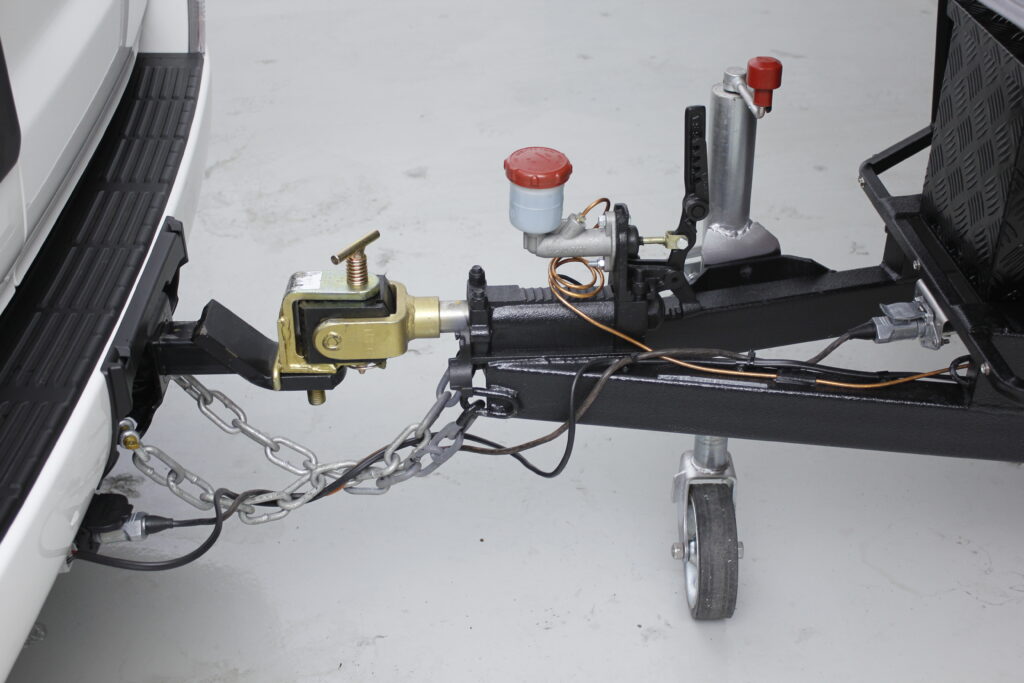
Animals Are Thieves Too:
You did hear correctly, Animals in Australia can be intriguing, adorable, and even friendly—but they can also be thieves, particularly when it comes to food.
Although most animals come out to forage at night, you may encounter those that may rapidly steal your food during the day. Wombats, dingos, lizards, birds, and kangaroos may sneak up on unsecured food.
We must keep wild creatures from becoming fascinated with human food. If they get their hands on human food, they can become hostile, rely on us for survival, and can consume food that can endanger their health.
Never feed wildlife intentionally and always store food, trash, and items with a scent (including soaps and sponges, insect repellent, toiletries, and medications) where wildlife cannot access it is both healthier for wildlife and safer for humans.
Please make sure that your food is properly stored in your refrigerator, car, kitchen drawers or other storage spaces and ensure food scraps and waste are not easily accessible.
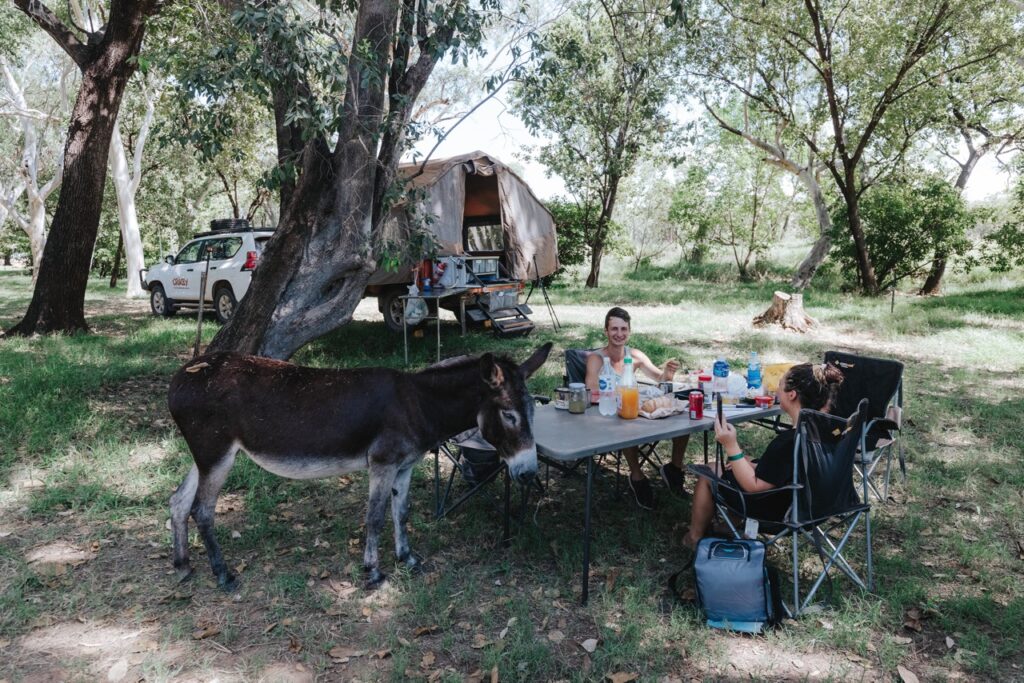
Campsite Safety Tips
Inspect And Prepare Your Campsite
When camping, safety should always be your top priority. Before setting up camp, thoroughly inspect the area for any overhead hazards like dead or overhanging branches from trees. Although trees provide shade, they may also have branches that could fall. It’s good to also make sure you are not camping too close to dangerous areas such as cliffs or bodies of water.
Western Australia can be a seriously windy place, especially on the coastline. When you are camping, you’ll need to expect and be prepared for the wind. If not, you’ll have a rather unpleasant time! When setting up your caravan make sure it is in the right direction and will block the wind, secure all loose items with pegs or under something heavy and retract/dismantle your awning when not in use. Caravan awnings are notorious for getting damaged and should be put away before you go to bed and when you leave your campsite for the day. They often tear or get ripped off and they are expensive to repair. For the quick time and effort required to put them away, it’s better to be safe than sorry (and then you won’t be kept awake all night by the flapping!).
Fire Safety
After you’ve finished cooking your meal, in addition to turning the stove off, please remember to turn your gas off at the bottle. Make sure there are no open flames and clear a sufficient area of flammable material to ensure spilt fuel or flames cannot start a bushfire.

How To Call For Help
Many national parks have no or limited mobile phone coverage. Have a look at your network’s coverage map to work out where you could go to make an emergency phone call if you needed to. If worse comes to worst, all our 4WD vehicles are fitted with a UHF radio. UHF radios are great to communicate over shorter ranges from your vehicle. Known as Ultra High-Frequency radios, these can be used to send messages over a distance of 30 Km in optimal conditions. Whether you are going to be part of a convoy or will be off-roading with your buddies, these UHFs will come in handy to share information with your troop or even with rescue rangers in case an emergency arises.
Below is some information from the Australian UHF channel chart you can refer to:
- Channel 18 for caravan/campers: If you have a 4×4 off-road camper or caravan, this is how people will find you in case something falls off the side of your camper along the way. This channel is for general use for off-road adventurers.
- Channel 40 commonly used by truck or oversized vehicle drivers: This channel is Australia’s main road safety resource.
- Channel 5 (or 35 – a repeater output channel) for emergencies only: In case you or someone in is hurt or injured and there are no other means of communication, channel 5 is the one you should use to get assistance. Both channels 5 and 35 are legislated by the Australian government and are reserved exclusively for emergency use. Any misuse, once proven, can lead to prosecution or substantial penalties.
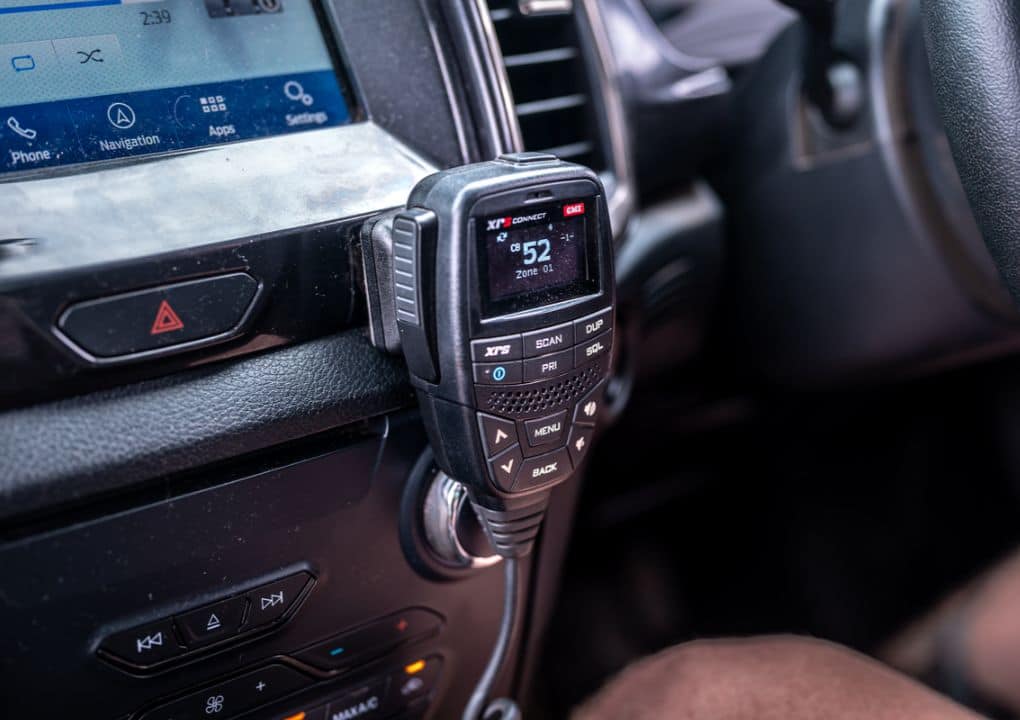
In Case Of An Emergency Send Out A Distress Signal
All our 4WD vehicles also include a PLB (Personal Locator Beacon). When activated, a PLB transmits a distress signal and is then relayed to the appropriate emergency services. The emergency services then dispatch a rescue team to the coordinates of the beacon transmitted. A PLB does not provide any information about the nature of the emergency. It should only be activated in a situation of grave and imminent danger – when faced with a life-threatening situation.

Know Where You Are:
Avoid getting lost by having access to maps, especially if you are heading out on bushwalks. Most National Park maps are available at the gate or available to download for free from their website.
First Aid:
Fingers crossed you won’t need to use it, but having the basics to clean and bandage a wound will be invaluable if you or someone you’re with does have an accident. Our First Aid Kits are stored in the front passenger compartment of all our vehicles.
Our Main Points:
- Lock your camper or caravan when unattended and when sleeping, including front storage compartments.
- Lock your vehicle when you are not in it and carry your key with you.
- Keep your valuables (keys, wallet, phone) on you whenever possible.
- Keep your other valuable items safe, hidden out of sight and locked within your vehicle or camper or caravan.
- Take pin and treg hitch/tow ball with you to prevent your camper or caravan from being hitched to thieves’ vehicles.
- Store your food in your refrigerator, car, kitchen drawers or other storage spaces. This is to avoid animals stealing your food and coming back for more.
- Inspect your campsite for any overhead hazards like dead or overhanging branches. Stay clear of cliffs and bodies of water.
- Secure all items and dismantle your awning when not in use.
- Turn your gas off at the bottle and make sure there are no open flames.
- If you need any medical care, our First Aid Kits are stored in the front passenger compartment of all our vehicles.
- All our vehicles have GPS tracking devices that show the real-time whereabouts and monitor the drivers’ behaviour.

